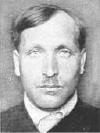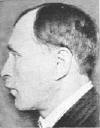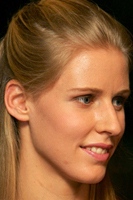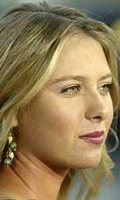Etymology:
The name, coined by Lundman, derives either from the association of the type with eastern Europe, or from its eastern provenience in relation to the Hallstatt and Keltic Nordid types.
Other names:
–
Origins:
Stabilized blend of a dominant high-headed Corded element with less important eastern European gracilized low-headed Cro-Magnoids, the former of which is often resurgent in East-Nordid individuals. Other elements, e.g. Hallstatt Nordid, may have been involved, but they are secondary to the above-mentioned. For further speculation on the topic of Nordid origins, please review the main page of the Nordish Gallery.
Description:
The East-Nordid type is dolichocephalic, leptoprosopic and leptorrhine, and similar in most features and measurements to the Hallstatt type, and there is considerable phenotypical overlap between the two. The main points of morphological departure involve the usually higher vault and forehead, and often more prominent (and sometimes convex) nasal skeleton, of the East-Nordid. These features, which are highly variable, are traits associated with a Corded morphology, and serve to illustrate the greater contribution of this highly specialized strain to the eastern variety, as contrasted with the Hallstatt and Keltic types (the latter of which is even characterized by a somewhat low and receding forehead). Body hair is not as strong as with the Hallstatt type, and the facial features are typically softer.
Illustrations:
Examples from The Races of Europe
(Carleton S. Coon 1939):


(A Chuvash from the Chuvash Republic)
Celebrity examples:



Pavel Kashin Elena Dementieva Alexander Godunov Maria Sharapova
(Russia) (Russia) (Russia; strongly Corded) (Belarus)
Further examples:



(Russia) (Russia) (?)
Geographical distribution:
Throughout western Russia and northeastern Europe. Transitional to the Pontid Mediterranid type to the south, and intermediates are sometimes referred to as North-Pontid. East-Nordids or East-Nordid approximations are frequently seen as far north as Finland, where an early Neolithic Corded element is possibly more important than more recent Swedish-mediated Nordid influence (of the Hallstatt variety).
Related or similar types:
– Hallstatt Nordid
– Keltic Nordic
– Trønder